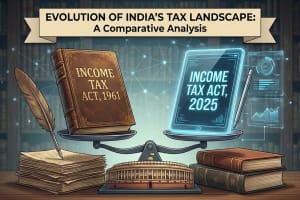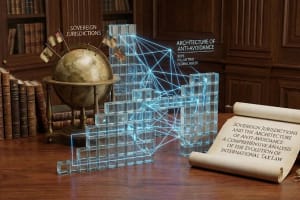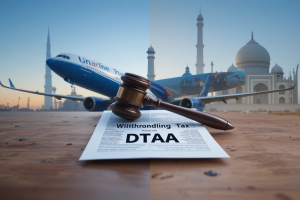Once the primary liability of the recipient has come to an end, vicarious liability of the payer cannot survive

Mumbai ITAT in its very short judgement but made very important observations and held that section 195, is a vicarious liability and its survival entirely depends on survival of the primary tax liability of income, embedded in the related payments, in the hands of the recipient. Once that primary liability stands quashed, as in this case, the very foundation of tax withholding demands under section 195 ceases to hold good in law.
In this case the counsel of the assessee pointed out that the very taxability of payments, in respect of which impugned tax withholding demands are raised, have been negated in the hands of the recipient, i.e. Braitrim UK Ltd., by a coordinate bench. A copy of the related order dated 21st August 2019 (in Braitrim UK Ltd. vs. DCIT; ITA Nos. 1750 to 1753/Mum/2015).
The full judgment is reproduced as under:
Judgment / Order
Pramod Kumar, Vice President And Ravish Sood, Member (J)
For the Appellant : Vasanti Patel
For the Respondents : S.S. Iyangar
ORDER
Pramod Kumar, Vice President
1. By way of these appeals, the assessee appellant has challenged corrections of consolidated order dated 30th January 2014 in the matter of tax withholding demands under section 201 r.w.s. 195 of the Income Tax Act 1961, for the assessment years 2005-06 to 2012-13
2. When these appeals came up for hearing, learned counsel for the assessee pointed out that the very taxability of payments, in respect of which impugned tax withholding demands are raised, have been negated in the hands of the recipient, i.e. Braitrim UK Ltd., by a coordinate bench. A copy of the related order dated 21st August 2019 (in Braitrim UK Ltd. vs. DCIT; ITA Nos. 1750 to 1753/Mum/2015) was also placed before us. In this order, the coordinate bench has, inter alia, observed as follows:-
13. We have carefully considered the rival submissions and perused the material on record. We find that the assessee is required to give a rebate/discount to the retailers based on the volume/units of sales to garment suppliers achieved by the Braitrim group. Subsequently, the proportionate share of rebate/discount is recovered by the assessee from its group companies, including BIPL, based on the relative sales of those group companies to the respective retailers. The assessee has, accordingly entered into a reimbursement agreement with BIPL, whereby BIPL has acknowledged its obligation to reimburse its proportionate share of the discount/rebate to the assessee based on sale volumes/units achieved by it. As per the Cost Reimbursement Agreement (CRA), such reimbursements are depicted as 'Administration charges' by BIPL in its books of account.
14. We find it relevant to refer to the following clauses of the Cost Reimbursement Agreement (CRA) in order to appreciate the nature and characterisation of the amount of reimbursements:-
i) that the title to the agreement is described as 'Cost Reimbursement Agreement';
ii) that the preamble to the agreement mentions the fact of payment of administration charges by the Assessee to the customer companies in respect of goods supplied by worldwide entities of Braitrim group including BIPL and the purpose of the agreement is to recover such charges by the assessee from BIPL;
iii) that Article 3 requires BIPL to compensate the assessee towards the proportionate administration charges in respect of goods supplied to the customer companies/suppliers;
iv) that Article 4 prescribes the method of computation of the proportionate share of the administration charges to be borne by BIPL determined as proportion of its sale to customer companies to the total worldwide sales of the Braitrim group; and,
v) that Article 5 stipulates that the payments made under the agreement represent reimbursement of administration charges borne by the assessee.
15. Therefore, so far as the understanding of the parties to the CRA is concerned, the same has been understood to be in the nature of reimbursement of the rebate/discount passed on by the assessee to the retailers. Factually speaking, it has also been established that there is no mark-up retained by the assessee while recovering from BIPL the rebate/discount given to the retailers. It is also clear that BIPL has also made sales to other independent parties for which no discount/rebate or administrative charges are payable to the assessee company. The aforesaid undisputed features of the arrangement clearly bring out that the transaction in question cannot be construed to be 'royalty' as understood by the income-tax authorities. This becomes even more pertinent once the nature of such payments by BIPL to the assessee has been admitted as such in the assessment of BIPL for assessment year 2007-08
16. Pertinently, the assessee stated that the transaction for reimbursement of administrative charges by BIPL to the assessee was subject to transfer pricing proceedings during the assessment year 2007-08, wherein the TPO questioned the commercial expediency of the transaction of payment for administration charges and determined the arm's length price as 'Nil', which was effectuated accordingly by Assessing Officer in the draft assessment order.
17. Before the DRP, BIPL raised objections against the draft assessment order, which was based on the order of the Transfer Pricing Officer. The DRP held as under:-
"The DRP has carefully considered the order of the TPO, submissions of the taxpayer and objections of the taxpayer. The main issue here is that the assessee has paid to its AEs an amount of ₹ 1,87,30,339 slating that these charges are paid as administration charges. However, as accepted by the taxpayer, these expenses are nothing but reimbursement of expenses incurred by the AE for the discounts to be passed on to the retailers by Braitrim UK. After considering the arguments of the assessee it can be inferred that Braitrim UK negotiates globally with various garment retailers to use the hangers manufactured by Braitrim group companies all over the world. As part of these arrangements/agreements Braitrim UK agreed to pass on the discount at the rate 1% of sale of hangers by Braitrim group of companies to the retailers. As rightly stated by the assessee because of this arrangement the taxpayer is getting business without much effort on advertisement and marketing as evidenced by no expenses on marketing or advertisement debited in the profit and loss account for the FY 2006-07. The Braitrim group companies supply the hangers to the garment manufacturers, which in turn supply to the ultimate retailers in the form of pre-hanged clothes. The assessee also supplied hangers to garment manufacturers within and outside India. Based on the sale of these hangers by the assessee Braitrim UK has to pay to the retailers at the rate of 1% on these sales made by the taxpayer to retailers through garment manufacturers. Before the DRP, the taxpayer also produced invoices raised by third party retailers against Braitrim UK to show that the said discount @ 1% on sale of hangers by the Indian entity was passed on to the retailers.....In view of the above discussion, we are satisfied that the discount given by the AE, Braitrim UK to the retailers is helping the tax payer to get the business without much marketing effort, for which the taxpayer is reimbursing the AE at the rate of 1% of sale of hangers in India, which was ultimately passed on to the retailers by the AE."
However, the DRP revised the arm's length price as computed by the TPO on account of the timing difference between the recognition of administration charges/rebate in the books of account of BIPL, vis-à-vis the amount recognized by the assessee in its accounts; and, accordingly, the assessment was finalised. When BIPL filed appeal before the Tribunal, the Tribunal, while accepting the payments to be reimbursements, restored the issue to the file of the DRP for examination of the reconciliation of invoices raised by the assessee and the invoices recorded by BIPL. The TPO, in response to the remand report called for by the DRP, as directed by this Tribunal, had accepted the contentions of BIPL and found the same to be in order.
18. From the aforesaid, it follows that for the assessment year 2007-08 there is a concurrent acceptance of the claim of BIPL that the payments are in the nature of reimbursement by all the authorities, viz. the TPO, the DRP and the Tribunal. Therefore, in the face of such concurrent acceptance of the nature of payment as being a mere reimbursement, it is untenable for the Revenue to contend in the captioned cases that the nature of the amount is otherwise. Therefore, what follows is that the expenses have been incurred by the assessee on behalf of BIPL and the same were merely reimbursed to the assessee. Ostensibly, the contractual responsibility of the rebates to be paid to retailers lies with the assessee. However, since the sales are made by BIPL, the commercial prudence postulates that BIPL bears the ultimate responsibility of such rebates in respect of India sales, and thus the payment of such reimbursements. Admittedly, the liability is definite and crystallised in the books of BIPL, and it merely represents normal discount. Thus, we are inclined to uphold the grievance of the assessee that the payments qualify as a pure reimbursement of expenses and accordingly, not taxable in India. The reimbursements received by the assessee are in respect of specific and actual expenses incurred by the assessee and do not involve any mark-up and the assessee has furnished sufficient evidence to demonstrate the incurrence of expenses. There is thus no good reason to make any addition to income in respect of these reimbursements of expenses. The action of the Assessing Officer, as the learned counsel rightly contends, is on pure surmises and conjectures.
19. Here, we would also like to refer to the judgment in the case of AP Moller (supra). Facts of that case were that the assessee was a foreign company engaged in shipping business and was a tax resident of Denmark; that it had agents working for it, who booked cargo and acted as clearing agents for the assessee; and, that in order to help all its agents across the globe, the assessee had set up and maintained a global telecommunication facility called Maersk net system which was a vertically integrated communication system. The agents would pay for the system on pro rata basis. According to the assessee, it was merely a system of cost sharing and the payments received by the assessee from its agents in India were in the nature of reimbursement of expenses. The Assessing Officer, however, did not accept this contention and held that the amount paid by these three agents to the assessee were FTS rendered by the assessee and held them taxable in India under Article 13(4) of the Double Taxation Avoidance Agreement (DTAA) between India and Denmark and brought them to tax at 20% u/s. 115A of the Act. The CIT(A) dismissed the assessee's appeal, but the Tribunal allowed its further appeal. The Hon'ble High Court dismissed the Department's appeal holding that the Tribunal had rightly observed that the Maersknet-communication-system was an automated software based communication system which did not require the assessee to render any technical services; that it was merely a cost sharing arrangement between the assessee and its agents to efficiently conduct its shipping business; and, that it was part of the shipping business and could not be captured under any other provisions except under the DTAA. The Hon'ble Supreme Court, dismissing the appeal held as under:-
"....... the facts that the assessee had its information technology system, that the assessee had appointed agents in various countries for booking of cargo and servicing customers in those countries, preparing documentation, etc., through these agents, that for the sake of convenience of all these agents, a centralised system was maintained to avoid unnecessary cost, that the system comprised booking and communication software, hardware and a data communications network and was, thus, an integral part of the international shipping business of the assessee and ran on a combination of mainframe and non-mainframe servers located in Denmark, that the expenditure incurred for running this business was shared by all the agents and that the systems enabled the agents to co-ordinate cargos and ports of call for its fleet were findings of fact. Once these were accepted, by no stretch of imagination, could the payments made by the agents be treated as fees for technical services. The payments were in the nature of reimbursement of cost whereby the three agents paid their proportionate share of the expenses incurred on these said systems and for maintaining those systems. Neither the Assessing Officer nor the Commissioner (Appeals) had stated that there was any profit element embedded in the payments received by the assessee from its agents in India. Once the character of the payment was in the nature of reimbursement of the expenses, it could not be income chargeable to tax. Moreover, freight income generated by the assessee in the assessment years in question was accepted as not chargeable to tax as it arose from the operation of ships in international waters in terms of article 9 of the DTAA. Once that was accepted and it was also found that the Maersk net system was an integral part of the shipping business which was allowed to be used by the agents of the assessee as well in order to enable them to discharge their role more effectively as agents, and the business could not be conducted without it, it could not be treated as any technical services provided to the agents."
20. Quite clearly, payments by way of reimbursement of expenses incurred on behalf of the payer cannot be construed as income chargeable to tax in the hands of the payee, a proposition which is approved by the Hon'ble Bombay High Court in the case of Siemens Aktiengesellschaft (supra). In view of the above discussion, we direct the Assessing Officer not to treat any part of reimbursement of expenses received by the assessee as income of the assessee. The assessee gets the relief accordingly on Ground No. 2 of the aforesaid appeal.
3. It is thus submitted that once the primary liability of the recipient has come to an end, vicarious liability of the payer cannot survive. We are urged to quash the impugned demands for this short reason alone.
4. Learned Departmental Representative does not dispute the facts stated by the learned counsel, but relies on the orders of the authorities below nevertheless.
5. The plea of the learned counsel is indeed well taken. A tax withholding liability, particularly under section 195, is a vicarious liability and its survival entirely depends on survival of the primary tax liability of income, embedded in the related payments, in the hands of the recipient. Once that primary liability stands quashed, as in this case, the very foundation of tax withholding demands under section 195 ceases to hold good in law. We, therefore, quash the impugned demands under section 201(1) r.w.s. 195 as well. The assessee gets the relief accordingly.
6. As we part with the matter, we make it clear that the present appeals are disposed of for short reasons discussed above. All other issues raised by the assessee have become infructuous, and are, therefore, dismissed as such.
7. In the result, all the appeals are allowed in the terms indicated above. Pronounced in the open court today on the 21st May, 2021.











